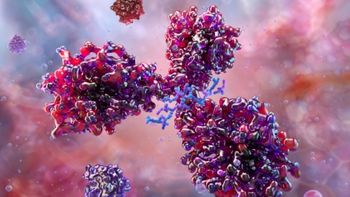
- BioPharm International-05-01-2008
- Volume 21
- Issue 5
Straightforward Guidance
In the context of process validation, the confirmation of a belief must be checked repeatedly, throughout the product lifecycle.
I thought I had walked into the wrong conference room. The speaker was showing slides about Francis Bacon, objectivity, and the scientific method. One Bacon quote that appeared on screen was this one:
Laura Bush
"The human intellect doesn't burn with a dry [uncontaminated] light, because what the person wants and feels gets pumped into it; and that is what gives rise to the 'please-yourself sciences.' For a man is more likely to believe something if he would like it to be true."
I checked the badges around me. Yes, I was still at the PDA annual meeting. But was this really the interest group session on process validation? It turned out it was. And after listening a bit longer to Kris Evans, who spent 20 years at the FDA and is now Amgen's director of global quality compliance, I realized it made perfect sense. Evans was reminding the audience how easy it is to convince yourself of what you want to believe—a risk to be very wary of when it comes to process validation.
For centuries, scientists developed theories mainly through logical deduction; it wasn't until the Renaissance that empirical testing took hold. One funny example that Evans cites is a theory proposed by Aristotle that men have more teeth than women. It never occurred to him to simply open peoples' mouths and count. We can laugh about that now, but even in modern times, we are not always immune to letting "logic" (which sometimes really means gut feeling) prevail over hard data.
This point was reinforced by other speakers in the session, including Rick Friedman, director of CDER's Division of Manufacturing and Product Quality at the FDA. "The scientific method is the basis for everything we're doing in the 21st century with respect to process consistency," he said. "When you look at your process validation data, you should ask yourself, 'Does my conclusion objectively match the data?'"
And of course, not only do the conclusions need to match the data at the time of initial filing, they must continue to match after years of commercial production. That is why process validation is a lifecycle activity, not something you do once and forget about. That means a lot of process monitoring, and paying special attention to common causes of variation, such as raw material changes and aging equipment. It also means constantly striving to improve legacy processes. "If you neglect the old dog in the corner and focus on the new puppy, it will catch up with you," Friedman said.
Several years ago, the FDA announced its plans to revise its 1987 process validation guidance. No one knows yet when the document will be issued, but according to Friedman, it won't contain any surprises; it follows the lifecycle approach presented in the 2004 Compliance Policy Guide on the same topic. And, he says, the current approach to process validation can be boiled down to one straightforward concept: ensuring your processes are in a state of control. "That's the guidance in a nutshell," he says. "It is all about achieving and maintaining a robust process."
Of course, process development and validation are complex activities, but as Evans and Friedman pointed out, it is worthwhile to step back and remember the fundamental principles of good scientific method, which are founded on an objective analysis of the data. Or to cite another of Evans's slides,
"The modern scientific method synthesizes rationalism and empiricism. . . There is an overwhelming consensus, though, that empiricism is the main emphasis. No matter how much logical deduction and mathematical analysis is used, at some point the world must be checked for the confirmation of a belief."
. . . and in the context of process validation, the confirmation of a belief must be checked repeatedly, throughout the product lifecycle.
Laura Bush is the editor in chief of BioPharm International,
Articles in this issue
almost 18 years ago
An Underfunded FDA Fights Backalmost 18 years ago
India's Clinical Trials Market Acceleratesalmost 18 years ago
Biomanufacturing Pendulum Swings Toward Overcapacityalmost 18 years ago
Managing the Global Supply Chainalmost 18 years ago
Cumulative Sum Charts for Problem SolvingNewsletter
Stay at the forefront of biopharmaceutical innovation—subscribe to BioPharm International for expert insights on drug development, manufacturing, compliance, and more.




